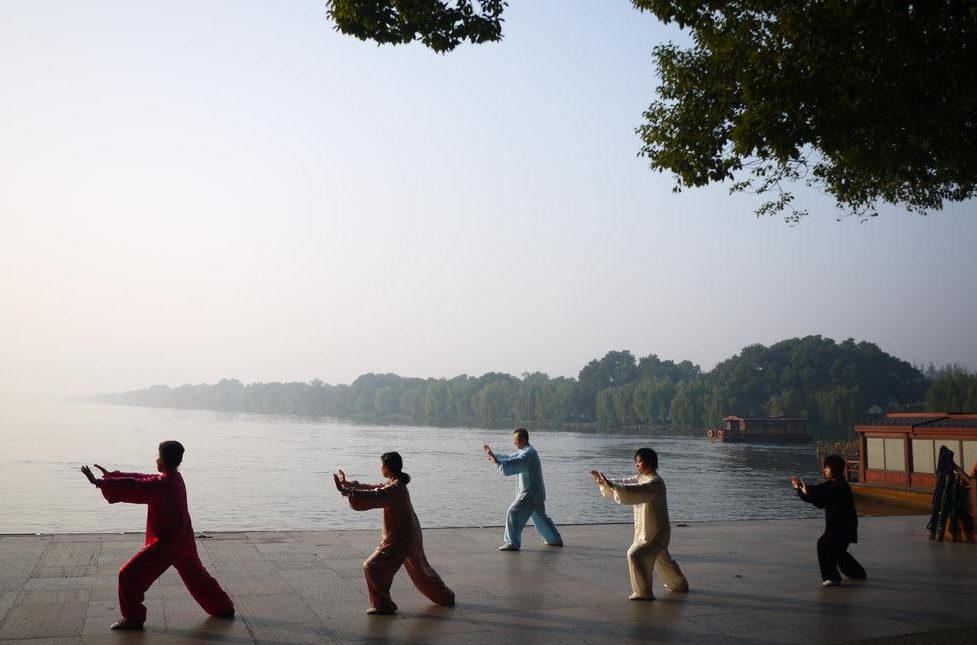
5:45 am. The streets of Beijing are already alive with the myriad activities, like Taiji that accompany Chinese daily life. A significant part of this early morning activity takes place in the hundreds of parks scattered across the city—some large, many small—and it is there that thousands of ordinary Chinese people prepare for the day to come.
By 6 am, the parks are pulsating with movement and people: some on their own, some in loosely organized groups, some in tightly regimented groups. The common thread that runs through all this activity is “Qi”— the vital life energy responsible for t healthy functioning of the body. Qi is absolutely central to Chinese thinking and governs everything from diet and medicine to life attitudes, even how to organize living and working space. “Good” Qi is taken in through the air we breathe and food we eat; “bad” Qi is then expelled and ultimately recycled as part of the endless cosmic round. The early morning is the best time to take in Qi, and the best place to do this is in close proximity to nature. Even in the most crowed and polluted urban settings, great care are taken of, and reverence is shown to, natural spaces, however small, in order to promote their good Qi.
The picture in the Beijing park is one of either movement – graceful, slow, and rhythmical – or balanced, rounded stillness. Every day, thousands of ordinary people practice the flowing movements of various Taiji forms, the focused stillness and flexibility of Qigong posture and the peaceful clarity of meditation. The objective of all these exercises is to enhance the movement of Qi through the meridians and collaterals of the body so as to achieve maximal physical stamina and flexibility and a clear and calm state of mind. Qigong is thus the traditional physical and psychological antidote to the difficulties of daily life – no more or less stressful in China than in any other part of the world.
By 7:30am the park is empty again, except for groups of elderly people who stay to talk and play chess, or young mother chatting and playing with their children. The daily ritual of “moving the Qi” is over again until the early evening when the same people return to the park and once again employ Taiji and Qigong skills in their endless but beautiful and rewarding search for physical and psychological health and well-being.

